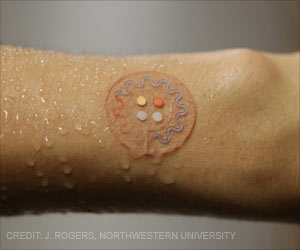World Meningitis Day is observed on 24th April every year. It aims to raise awareness about the symptoms and signs, treatment, and prevention of meningitis. The theme for 2019 is ‘Life After Meningitis.’
- World Meningitis Day is observed annually on 24th April
- It aims to raise awareness about the symptoms, treatment, and prevention of meningitis
- This year 2019 with a theme ‘Life After Meningitis’, let us all support meningitis survivors and their families
Read More..
World Meningitis Day 2019 Theme: ‘Life After Meningitis’
This year’s theme aims to highlight the courage and bravery of meningitis survivors and their families in overcoming the challenges that they face on a daily basis.‘Life after meningitis’ can change forever as meningitis survivors are left with lifelong complications, including the following:
- Vision and hearing problems
- Learning difficulties
- Behavioral changes
- Exhaustion
- Depression
- Intellectual disability
- Reduced bone growth
- Skin scarring
- Organ failure
- Amputation
Strategies for Improving the Plight of Meningitis Patients
The under-mentioned strategies could be adopted to improve the condition of meningitis survivors, as well as prevent the disease:- Generating public awareness about meningitis through educational efforts
- Sharing real-life stories of meningitis survivors
- Information sharing about symptoms and signs of meningitis
- Improving access to fast and effective treatment
- Increasing knowledge about available meningitis vaccines
- Advocating for the availability of meningitis vaccines worldwide
- Lobbying in Parliament for policy changes
- Using social media like Facebook and Twitter to reach a larger audience
- Strengthening the patient’s voices through advocacy
- Supporting patients and their families in ‘cash or kind’
- Encouraging strong connections between various stakeholders for establishing a robust global meningitis network
Meningitis & its Complications
Meningitis and its symptoms have been described numerous times throughout history. It has even been described by Hippocrates (c. 460 - 370 BC). The first major outbreak of meningitis occurred in Geneva, Switzerland in 1805. Since then, outbreaks have occurred throughout the world, especially in the African Meningitis Belt.Meningitis can be caused by several microbes, including bacteria, viruses, and fungi. Of these, bacterial meningitis is the most common, which causes 170,000 deaths globally every year. Although most people recover from meningitis, this can take a long time. Many people, post-recovery, often experience after-effects, which can range from mild-to-moderate-to-severe forms of disability. After-effects are most common in case of bacterial meningitis. Approximately 15 percent of survivors suffer from serious disability that requires round-the-clock supportive care.
Viral meningitis, as opposed to bacterial meningitis, is rarely life-threatening and is usually a mild illness. Common symptoms include severe headache, fever, pain, and body ache. After-effects of viral meningitis are more common in infants and the elderly, who have a comparatively weaker immune system.
Meningitis: Facts & Figures
- Meningitis affects over 2.8 million people annually worldwide
- 1 in 10 people who contract bacterial meningitis die
- 1 in 5 bacterial meningitis survivors are left with lifelong after-effects
- Meningitis can kill within 24 hours – fast action is crucial for survival
- Nearly 20 percent of bacterial meningitis patients die even with prompt diagnosis and treatment
- Around 30 percent of bacterial meningitis patients become permanently disabled
- Meningitis attacks anyone of any age
- Infants, young children, adolescents, and old-aged people are most vulnerable to meningitis
- Vaccines are crucial for prevention of meningitis
- Expenses for the lifelong care of meningitis survivors is £3-4.5 million in the UK
Meningitis: What Should You Look Out For?
All Ages:- Fever
- Cold hands and feet
- Seizures
- Drowsiness
- Confusion
- Blank expression
- Vomiting & diarrhea
- Rashes
- Severe headache
- Dislike for bright lights
- Neck stiffness
- Joint & muscle pain
- Loss of appetite
- Bulged head
- High-intensity crying
Meningitis Vaccines: An Essential Preventive Strategy
Vaccines are the best preventive measure against meningitis and can prevent more than 90 percent of bacterial meningitis cases. Some of the key aspects pertaining to meningitis vaccines are briefly highlighted below:- Meningitis vaccines currently available protect against three types of bacterial meningitis:
- Meningococcal disease
- Pneumococcal meningitis
- Hemophilus influenzae Type b (Hib)
- Examples of bacterial meningitis vaccines – MenACWY, MenB, PPV23, Hib
- Measles Mumps Rubella (MMR) and chickenpox vaccines protect infants against viral meningitis caused by these viruses
- There are no vaccines for fungal meningitis
- High meningitis vaccination rates can confer protection to unvaccinated individuals in a population – a phenomenon known as ‘herd immunity’
- The power of vaccination is underscored by the fact that meningitis has virtually disappeared from across the African Meningitis Belt by using the MenAfriVac vaccine
Global Efforts to Eradicate Meningitis by 2030
The global efforts for eradicating meningitis are being spearheaded by the World Health Organization (WHO) and the Meningitis Research Foundation (MRF). This involves world renowned meningitis experts for creating a global vision of a world without meningitis. This global vision was conceptualized by the MRF and is being implemented by the WHO through various initiatives.Roadmap for Eradicating Meningitis
This focuses on the following key aspects:- Prevention and epidemic control
- Diagnosis and treatment
- Information and advocacy
- Surveillance
- Support and aftercare for survivors
References:
- World Meningitis Day 2019 - Confederation of Meningitis Organizations (CoMO) - (http://www.comomeningitis.org/world-meningitis-day/wmd-2019/)
- World Meningitis Day - British Society for Immunology - (https://www.immunology.org/news/world-meningitis-day)
- Meningococcal Meningitis - World Health Organization (WHO) - (https://www.who.int/en/news-room/fact-sheets/detail/meningococcal-meningitis)
- What is Meningitis? - The Meningitis Foundation, New Zealand - (http://www.meningitis.org.nz/about_meningitis)
Source-Medindia











